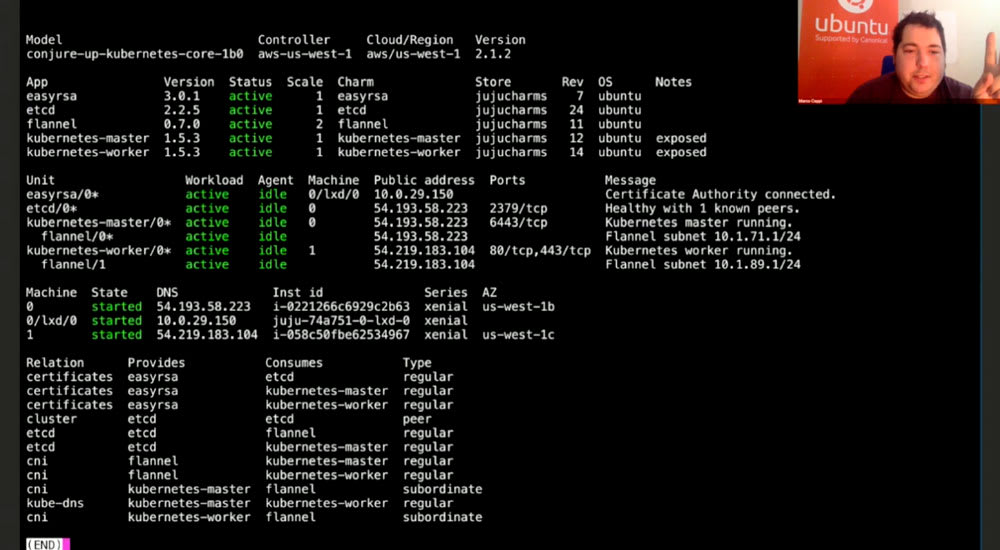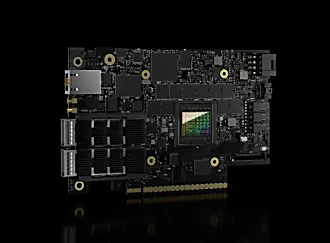James Donner
on 3 April 2017
Cloud Chatter: March 2017
Our March edition is packed with exciting content. We begin with our recent announcement of Ubuntu 12.04 Extended Security Maintenance providing ongoing security updates for Ubuntu 12.04 LTS at least another year. Download our latest ‘Carrier Cloudification’ eBook, or join our upcoming webinars on OpenStack, Containers, GPUs/Deep Learning and VNF deployments. Check out our roundup of key demos shown on our booth at Mobile World Congress. We’ve also included a fantastic host of tutorials for MAAS and Containers.

Introducing Ubuntu 12.04 Extended Security Maintenance (ESM)
Ubuntu 12.04 LTS was released in April 2012, and with all LTS releases, Canonical has provided ongoing security patches and bug fixes for a period of 5 years. The Ubuntu 12.04 LTS period will end on Friday, April 28, 2017.
Following the end-of-life, Canonical is offering Ubuntu 12.04 ESM (Extended Security Maintenance), which provides important security fixes for the kernel and the most essential user space packages in Ubuntu 12.04. These updates are delivered in a secure, private archive exclusively available to Ubuntu Advantage customers on a per-node or per hour basis.
All Ubuntu 12.04 LTS users are encouraged to upgrade to Ubuntu 14.04 LTS or Ubuntu 16.04 LTS. But for those who cannot upgrade immediately, Ubuntu 12.04 ESM updates will help ensure the on-going security and integrity of Ubuntu 12.04 systems.
To learn more about Ubuntu 12.04 ESM, and the options available for upgrading your Ubuntu 12.04 systems today, watch this on-demand webinar.
Learn the secrets to innovative and scalable VNF deployment
Are you a service provider interested in understanding the state-of-the-art for orchestration of VNF services and looking at the best practices? Or are you a networking vendor wanting to understand what NFV orchestration and service modelling can provide? Then join our upcoming webinar on the 7th April when experts from Canonical and Fraunhofer FOKUS will demonstrate how to easily deploy scalable VNF services using Open Baton and Juju. Learn more
Commoditizing artificial intelligence with Kubernetes and GPUs
While Deep Learning and AI are considered the fuel of IT growth for 2017, little has been done outside of the cloud to help enterprises to adopt it. In our upcoming webinar (12th April), we’ll discuss how such commoditization can be achieved using Kubernetes, nVidia GPUs, and the operation toolbox provided by Canonical. Register for the webinar

Carrier cloudification: what every telecom executive needs to know
The cloud has forced today’s telecom service providers to transform and perform at increasingly high speeds, counter to their normal mode of operations. Due to customer demand, operators are moving away from just providing connectivity, and have realised they can compete at the customer or regional level for a share of wallet by providing value-added services that public cloud providers simply cannot compete with. In our latest ebook, we talk about the solution and expertise required to help telecoms make the move to delivering revenue generating services much faster. Read the eBook
GPUs and Kubernetes for Deep Learning
The Canonical Distribution of Kubernetes is the only distribution that natively supports GPU, enabling Deep Learning and Media workloads. In a three-part tutorial, we show you how to deploy Kubernetes with GPUs and add EFS storage to your how to define, design, deploy and operate a Deep Learning pipeline using Tensorflow automation. Read more to get started

Join our OpenStack and Containers Office Hours
Our new ‘Office Hours’ sessions help community members and customers deploy, manage, and scale their Ubuntu-based cloud infrastructure. These interactive webinars, hosted by a senior engineer from our cloud architecture team cover a range of topics around OpenStack and containers. Register and learn more
Get up and running with Kubernetes
Our Kubernetes webinar series will be a covering a range of operational tasks over the next few months. These will include upgrades, backups, snapshots, scalability, and other operational concerns that will allow you to completely manage your Kubernetes cluster(s) with confidence. The available webinars in the series so far include:
- Getting started with the Canonical Distribution of Kubernetes – watch on-demand
- Learn the secrets of validation and testing your Kubernetes cluster – watch on-demand
- Painless Kubernetes upgrades – register now
Another successful Mobile World Congress show
‘Software-defined everything’ represents a step change in the telco industry in particular. The entire industry is moving away from a mode of organising and thinking about their network and services as appliances with fixed functions to stacks of interacting software. At Mobile World Congress 2017, we told the story of how we help our customers to build modern cloud infrastructure that allows them to deploy new services with greater speed and agility. View our key selection of demos
Top posts from Insights
- [Whitepaper] The no-nonsense way to accelerate your business with containers
- [eBook] What IT pros need to know about server provisioning
- [Video tutorial] How to install MAAS on your machine
- [Demo] Top of rack switches with MAAS
- [Tutorial] Run your own LXD demo server
- [Tutorial] NVidia CUDA inside a LXD container
- [Blog] Bare metal server provisioning series: the economics of automation
- [Blog] Bare metal server provisioning is evolving the HPC market
- [Blog] DevOps for NetOps
- [Blog] Machine learning with snaps
Ubuntu Cloud in the news
- Canonical Combines its OpenStack with Huawei’s SDN Controller
- Huawei, Canonical push data centre network efficiency with cloud partnership
- Ubuntu Server: The smart person’s guide
- Canonical extends Ubuntu 12.04 support for paying customers
OpenStack, SDN & NFV
- Canonical’s Founder on the Key NFV Challenges Facing Operators
- OpenStack® Board Elects Huawei as Platinum Member and H3C as Gold Member of the Foundation
- As NFV matures, is the infrastructure ready for automation?
Containers & Storage
- Five key cloud trends to look forward to in 2017
- Enterprise container DevOps steps up its game with Kubernetes 1.6
- Cloud Native Computing Foundation Announces Dell Technologies as Platinum Member



